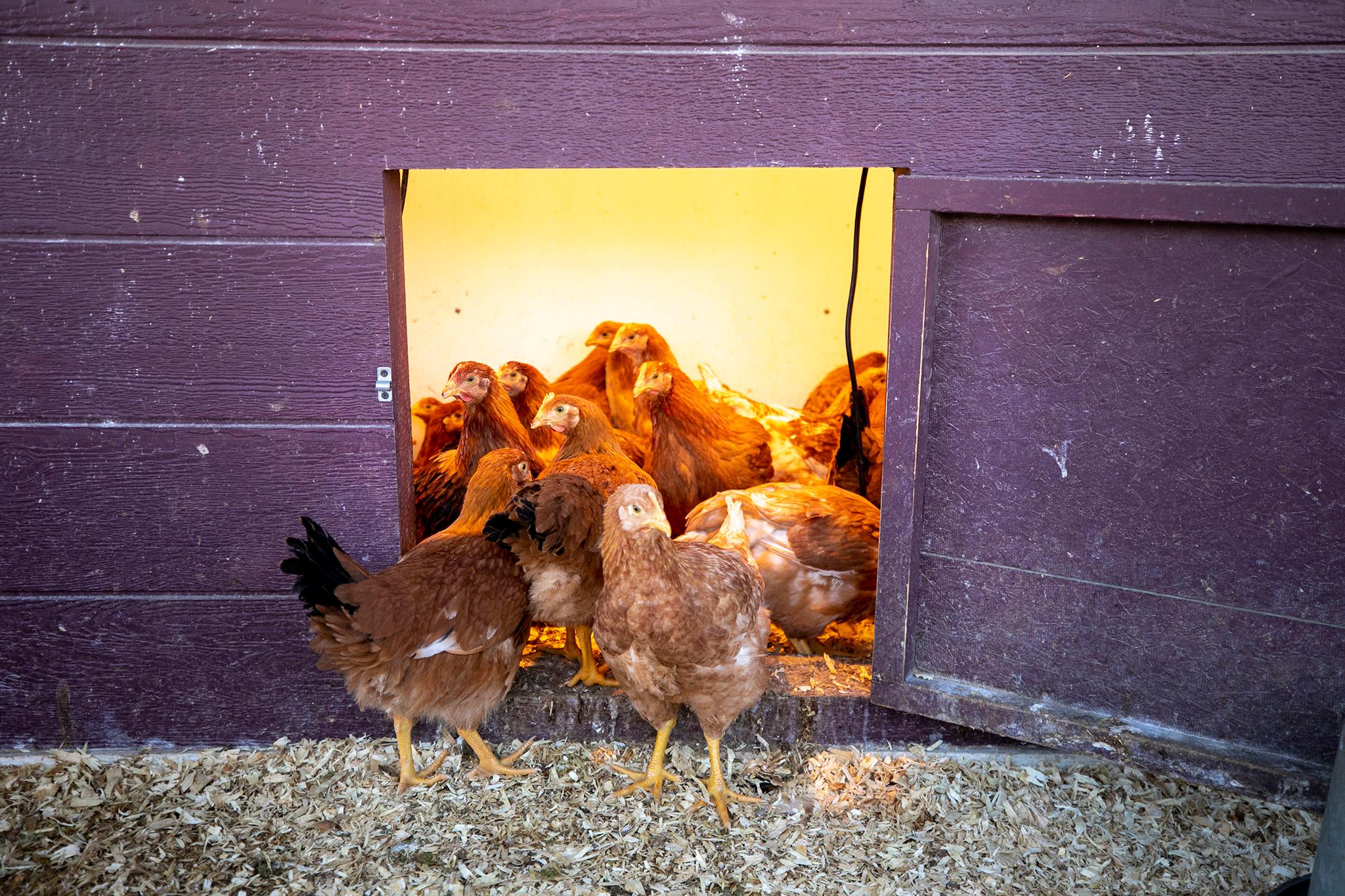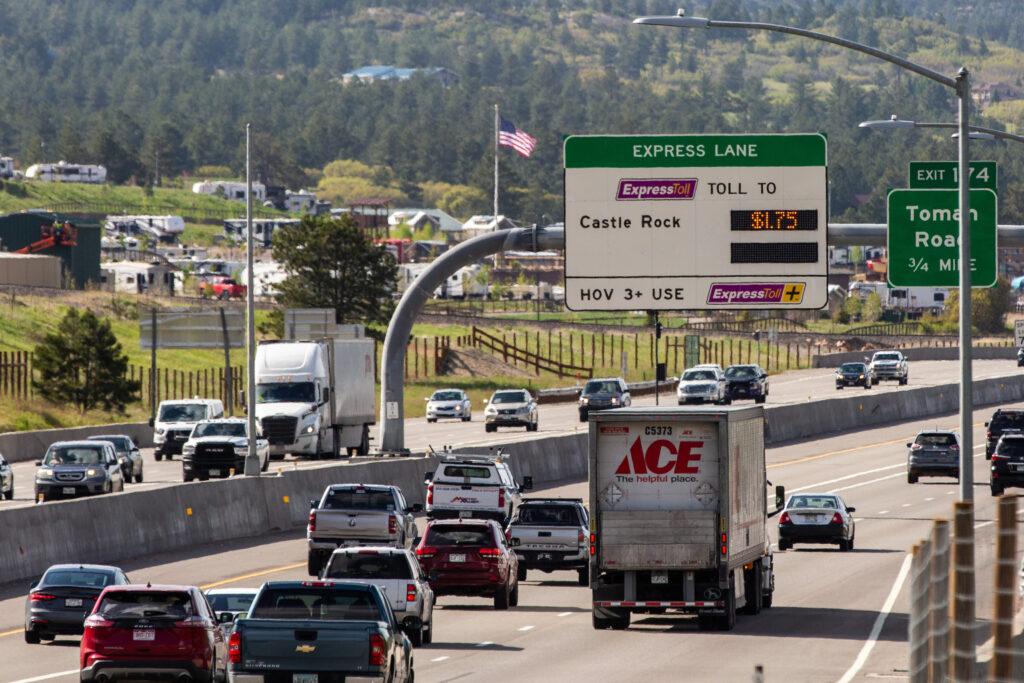
Whether driving, shopping or going to work, Coloradans will encounter a host of new laws and policies that take effect in 2025. We’ve rounded up a number of them for you here:
Keep your hands off your cell while driving…
Starting with the new year, you can be ticketed if an officer catches you with your cell phone in your hand while driving. And yes, that includes scrolling while sitting at a traffic light.
There is one catch though: The new law doesn’t allow officers to pull you over just for cell use. Instead, the ticket can be added on if you’re stopped for something else, like driving recklessly.
To use a mobile device while driving, it either needs to be operated by Bluetooth through your vehicle’s onboard system, or placed in a mounted bracket on your dash.
… and behave yourself around Colorado’s toll lanes
Weaving in and out of express lanes and other misbehavior will net drivers automated tickets in the new year.
CDOT is bringing electronic enforcement online starting Jan. 1 for toll lanes along US-36, on I-70 through Denver and the I-25 Southern Gap, with cameras and sensors on the watch for scofflows. Tickets start at $75 but get steeper if they go unpaid.
Similar enforcement has already been in place for the I-70 Mountain Corridor, and CDOT says it’s seen an 80 percent decrease in violations since it started.

If you travel with a gun in your car, there are new rules for securing it
Drivers who keep a gun in their cars must have it stored out of sight, in a hard sided container — a locked glove compartment or center console counts — when they leave their vehicle. The car needs to be locked, too.
This law has some carve-outs for those working and living on farms and ranches, active-duty military personnel, hunters and law enforcement.
Many families will receive a big new tax credit
Lawmakers created a new tax benefit last year, and expanded an existing one, with the goal of putting more of the state’s tax refund money in the pockets of lower income families and workers.
Colorado’s new Family Affordability Tax Credit is worth up to $3,200 per child, depending on household income. The size of the benefit decreases based on the child’s age and the family’s income.
It’s a refundable tax credit, so its full value can be paid out as cash, even if the family doesn’t owe any taxes. About 370,000 households are expected to qualify for the benefit.
The state is also expanding the value of its Earned Income Tax Credit. How much money people will see from that change will depend on the value of their federal EITC benefit.
Eligible Coloradans can receive their credits by filing their 2024 taxes this year.
The lowest paid workers will get a raise
The minimum wage in Colorado will increase by 39 cents an hour, starting Jan. 1, 2025, bringing it to $14.81 an hour for jobs that don’t receive tips and $11.79 for those that do. That’s more than double the federal minimum wage of $7.25 an hour.
Colorado’s minimum wage rises annually based on the Consumer Price Index (CPI). This year's increase comes to 2.7 percent, or about $811 more annually, for a full-time worker.
A handful of counties and cities have raised their wages above the state floor. Denver has the highest minimum wage in the state, at $18.81 an hour.

Cage-free eggs only in the grocery store
Next year marks the end of an ongoing process to shift Colorado’s egg supply from birds in crates to ones in cage-free systems.
The eggs you buy after Jan. 1 will come from barns that provide at least one square foot of floor space per hen, as well as enrichments like perches, nest boxes and dust bathing areas.
Smaller egg producers are exempted from the new rules.
Donor-conceived children gain the right to find their biological parents
Starting this year, Colorado will no longer allow anonymous sperm and egg donations, under a first-in-the-nation policy. But the change only applies to children conceived after Jan. 1; it is not retroactive.
The law also requires egg and sperm banks and fertility clinics to keep records to ensure no single donor is used for more than 25 families, in or out of state. Donors must be at least 21 years old and must provide medical information that can be passed along to a family who uses their genetic material.
A few other new policies:
- New child safety policies will raise the age for a baby to remain in a rear-facing car seat from one-year-old to two. Teenagers will now be legally required to wear their seatbelts up until the age of 18; it was 16 before.
- The state is expanding access to Medicaid to undocumented pregnant women, and allowing their children to enroll in CHIP, the Children’s Basic Health Plan, starting in the new year.
- People convicted of certain violent crimes after Jan. 1 will have to serve more of their sentences before being eligible for parole, under voter-approved Prop. 128.
- Colorado will officially release its rules for psychedelic healing centers, setting up the process to allow regulated facilities for psilocybin experiences.
- The value of the state’s electric vehicle tax credit is shrinking from $5,000 to $3,500.
- Companies that violate Colorado’s child labor laws will face stiffer penalties.
- Civic-minded teens as young as 15 will now be able to pre-register to vote for when they hit 18.
This article was compiled by CPR editor Megan Verlee from reporting by members of the CPR newsroom, including Kiara DeMare, Michelle Fulcher, Andrew Kenney, Bente Birkeland and Haylee May.






